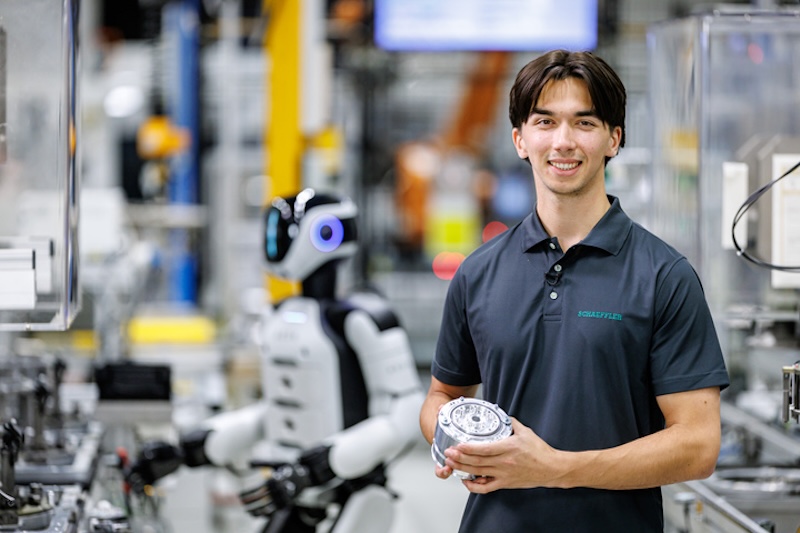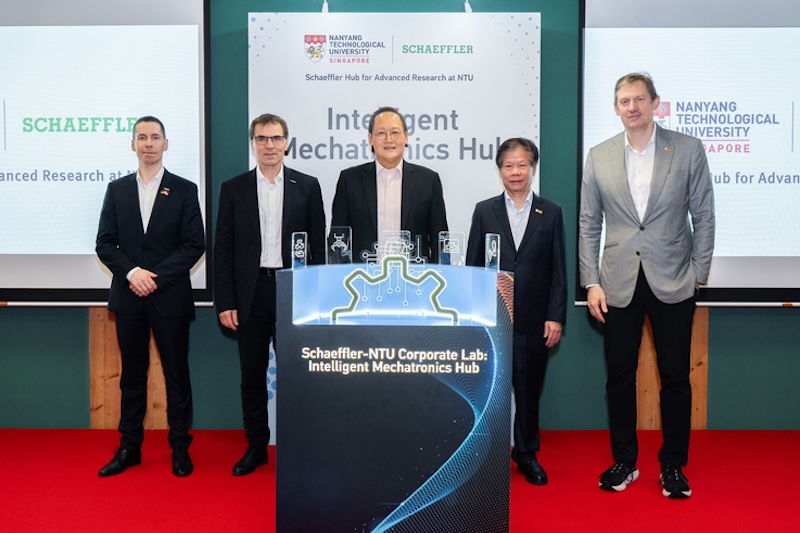Schaeffler has partnered with Singapore’s Nanyang Technological University (NTU) to open a new robotics and artificial intelligence laboratory, deepening its R&D presence in Asia and sharpening its focus on the fast-moving humanoid robotics market.
The new 900 sq m facility is part of the Schaeffler Hub for Advanced Research (SHARE) programme, the company’s global network of university-based R&D centres.
The partnership will support work in humanoid robotics, collaborative robotics, and automated mobile platforms, combining NTU’s research capability with Schaeffler’s industrial and motion-technology expertise.
Schaeffler describes humanoid robotics as a major growth area in which it intends to compete both as a user of robots and as a supplier of key components.
The company says it has “recently announced partnerships with major humanoid manufacturers that also include contracts to supply components”, and that the new lab will help accelerate development work from “laboratory to practice”.
In addition to supplying core hardware to other humanoid manufacturers, Schaeffler is preparing to deploy humanoid robots inside its own global production network.
The company says it is “going to integrate a significant number of humanoids into its worldwide production facilities”, positioning the technology as part of its long-term automation strategy.
Schaeffler’s component portfolio gives it several entry points into the humanoid supply chain. Its linear and rotary drives, high-precision bearings, sensors, and intelligent actuator systems are already used across industrial automation.
The release highlights one specific example: planetary gear actuators originally developed for electric mobility, which “are used, for example, in the shoulders and hips of humanoid robots”.
Uwe Wagner, chief technology officer at Schaeffler, says the new NTU partnership strengthens the company’s innovation roadmap: “Schaeffler exemplifies the highest standard of innovation and is reinforcing this expertise specifically in the future growth segments of humanoid robotics and artificial intelligence.”
Together, Schaeffler and NTU aim to translate academic research into deployable industrial technology – a path that could help the motion-technology supplier secure a stronger position in the rapidly expanding humanoid robotics market.


